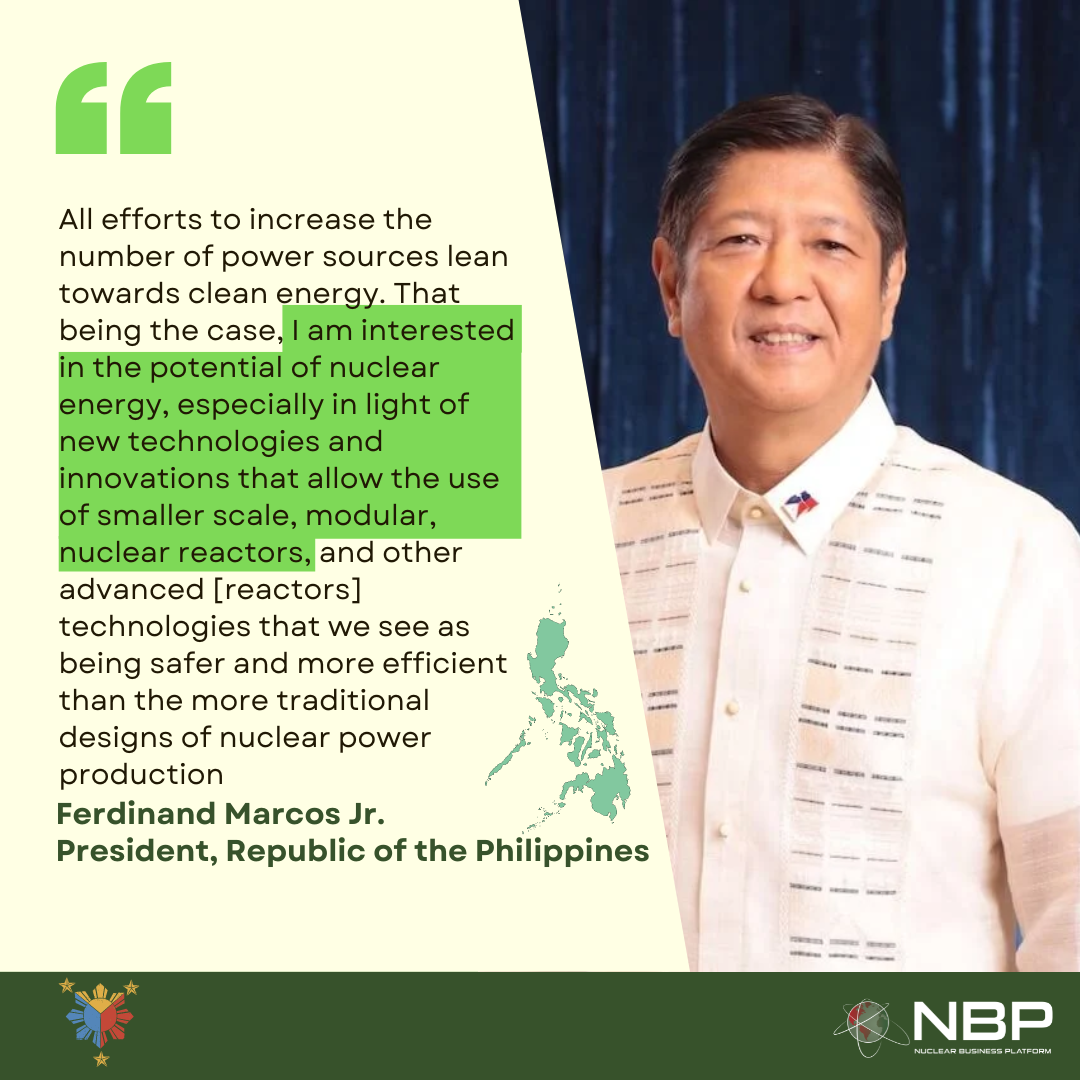Philippines Utility Giants Eye Nuclear Energy
The Philippines, as one of the fastest-growing economies in Southeast Asia, faces the challenge of ensuring reliable energy while balancing environmental concerns. Two major utility players, The Manila Electric Co. (Meralco) and Aboitiz Group, are at the forefront of these transformative efforts, both eyeing nuclear energy as part of their sustainability strategy.
Meralco’s Drive Towards Sustainability
Meralco, the largest private sector electric distribution utility company in the Philippines, serves 38 cities and 73 municipalities, accounting for 55% of the country's electricity output. Its three-tiered "Horizons" approach provides a clear road map towards a greener future. In the “Horizon 2” targets the utilisation of nuclear sources from 2031 to 2040, highlighting Meralco's commitment to adopting clean technologies. The company is not just exploring nuclear power but actively pursuing its potential development. Partnering with a US-based nuclear power company, Meralco aims to establish a pilot nuclear plant, with feasibility studies supported by the US Trade and Development Agency. The path to nuclear energy is not without challenges. Manuel V. Pangilinan, Meralco's Chairman and CEO, emphasised the need for a strong regulatory framework and skilled workforce. The potential risks of nuclear plants cannot be undermined, and the Philippines must be well-equipped both in knowledge and infrastructure.The readiness is further displayed by their efforts to foster local talent in the nuclear field through scholarships.
Aboitiz Power's Vision
Parallelly, Aboitiz Power is also exploring the nuclear energy landscape. Aboitiz Power, is in discussions with global nuclear companies like Rolls-Royce and NuScale. Their interest in Small Modular Reactors (SMRs) stems from their adaptability to the Philippine landscape.
During the APEC Business Advisory Council (ABAC) III meeting, Aboitiz Group, through their CEO, highlighted crucial climate risk issues. The proposed "Climate Risk Scenarios Project" aims to aid economies in building long-term climate resilience. By providing a free platform encompassing data, methodologies, and policies related to climate risks, Aboitiz hopes to bridge the information gap between economies, fostering a more collaborative approach to combating climate change.
Towards a Collaborative Future
The Philippine government's role in these developments cannot be overlooked. President Marcos's meetings with nuclear power firms, combined with his advocacy for renewable energy, illustrate the nation's commitment to a sustainable future. The public and private sectors must join hands in identifying pragmatic solutions to tackle energy insecurity, climate change, and biodiversity loss. As highlighted by President Marcos, the business sector's support is crucial for the realisation of the Philippines' climate agenda.
Both Meralco and Aboitiz Power's endeavours represent the Philippines' broader transition towards a sustainable energy future. Their strategic approach to nuclear energy holds the promise of a cleaner, greener tomorrow. As the world shifts towards an environment, social, and governance (ESG) investing paradigm, these efforts underscore the necessity of proactive change, innovation, and collaboration in addressing the pressing challenges of the 21st century.


